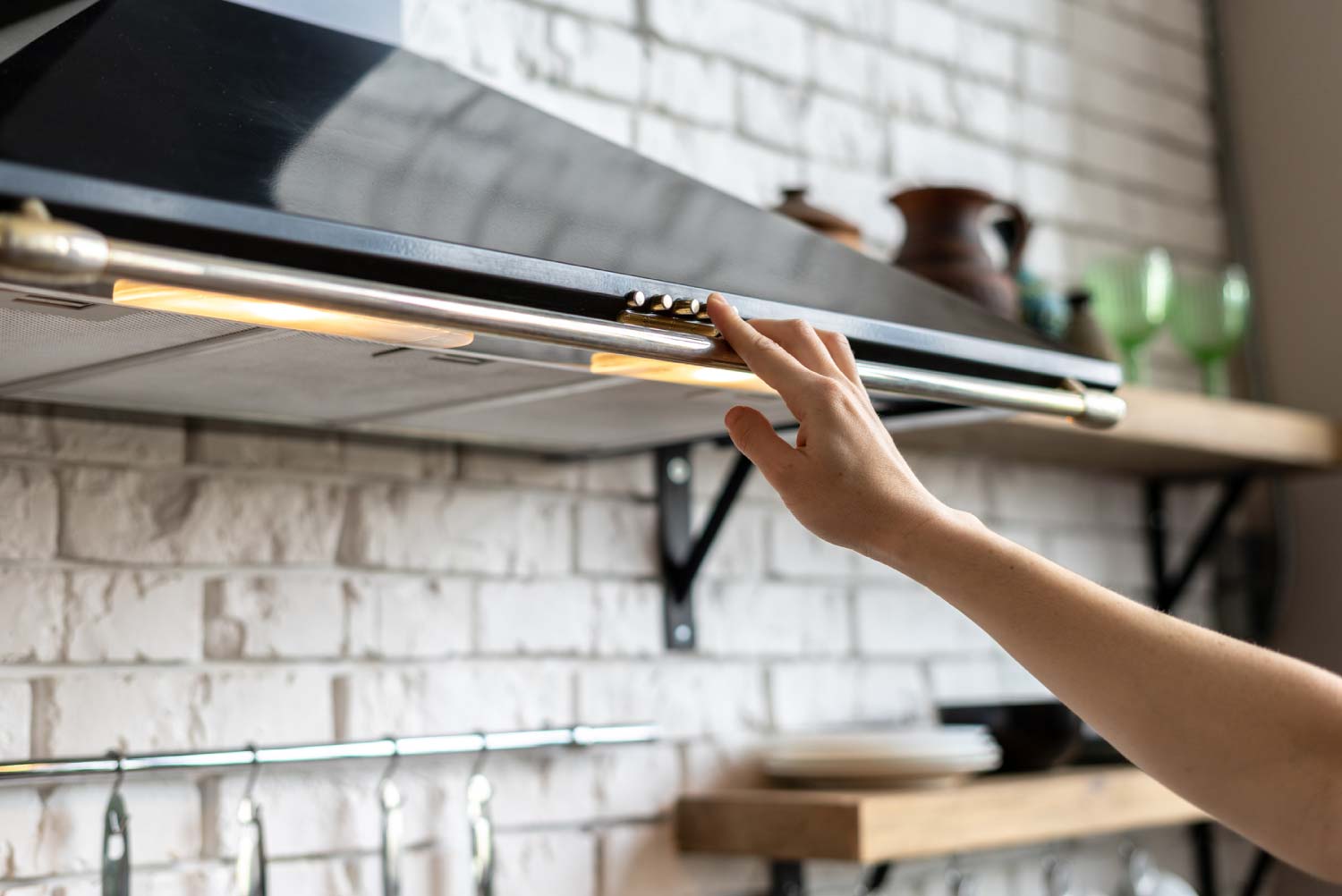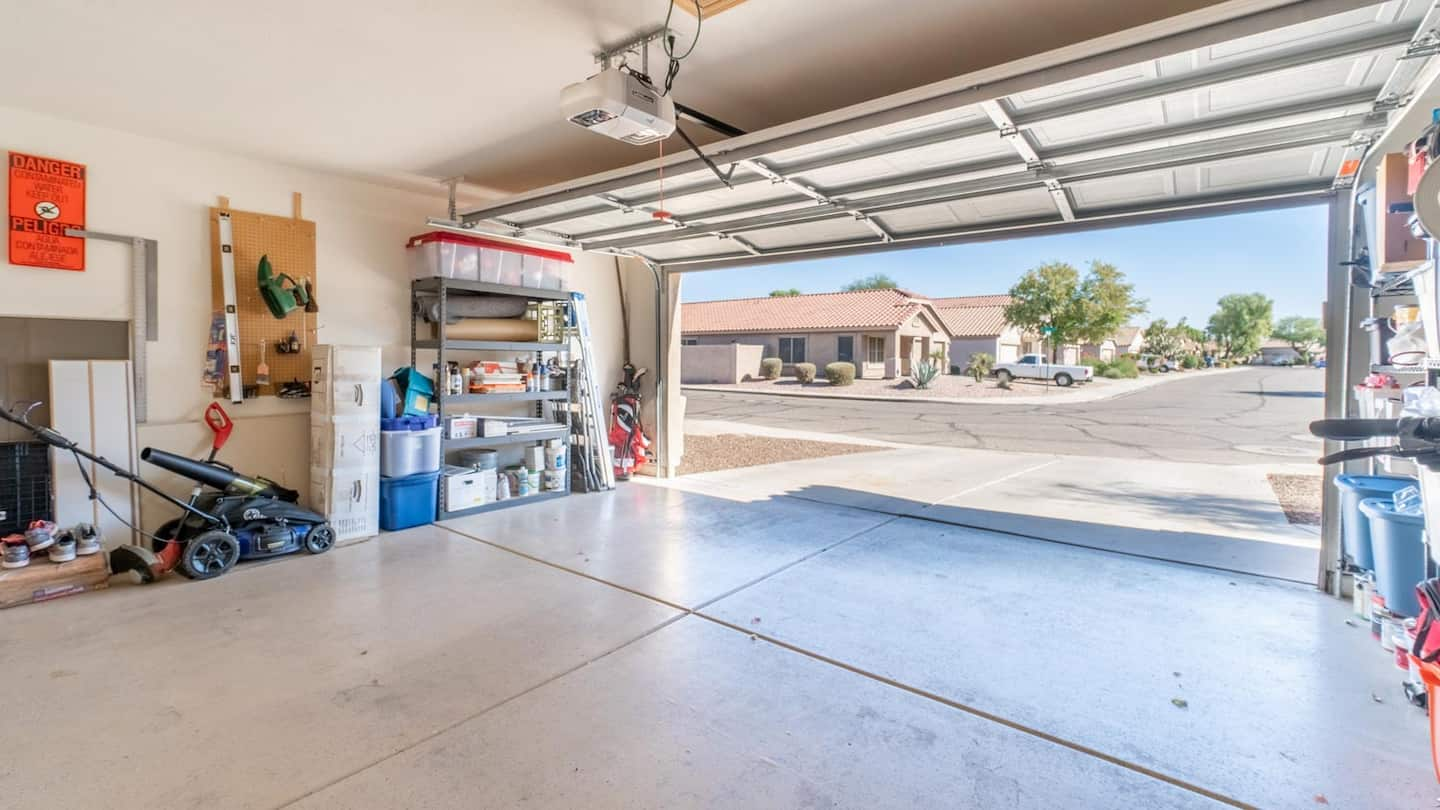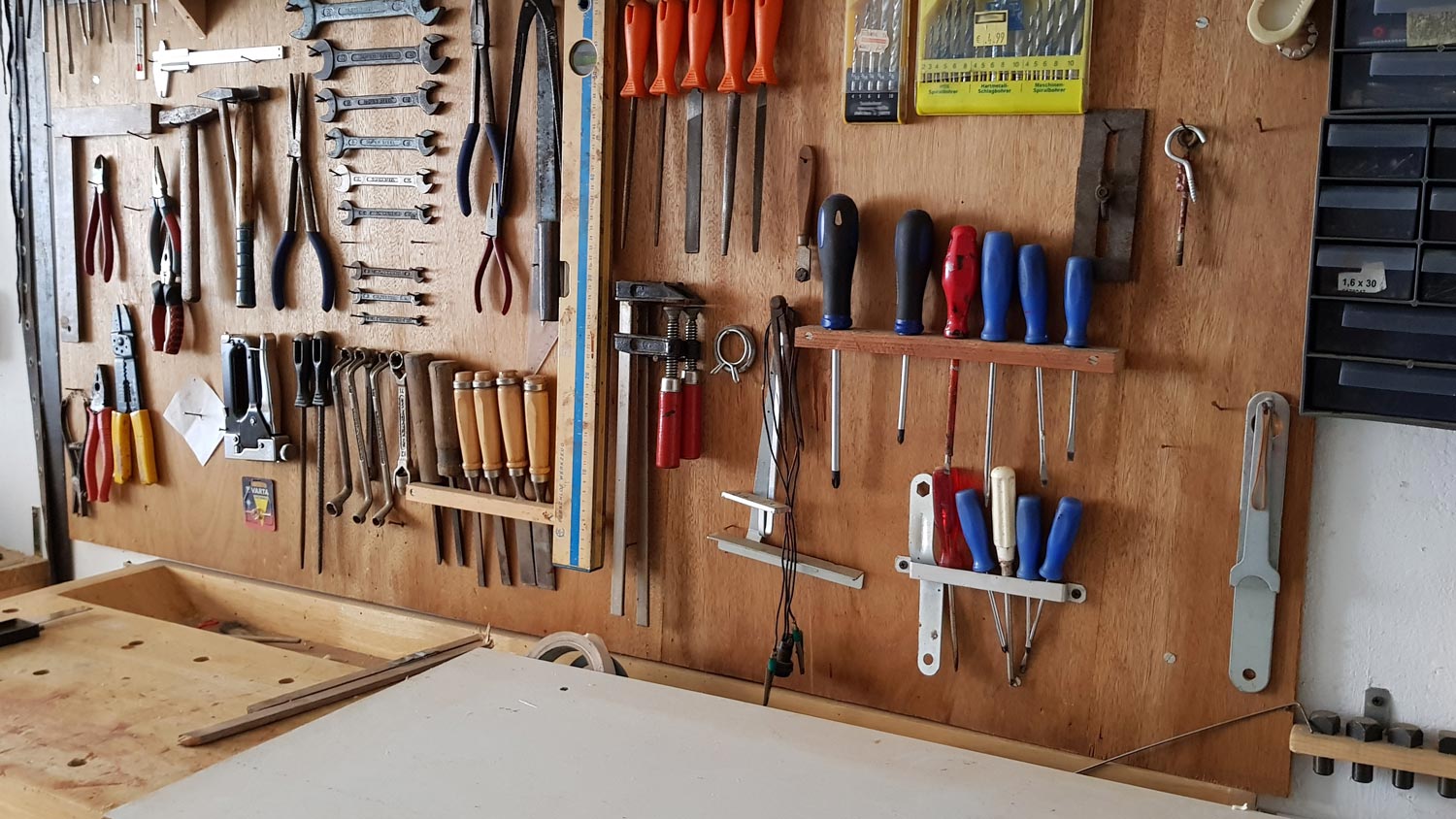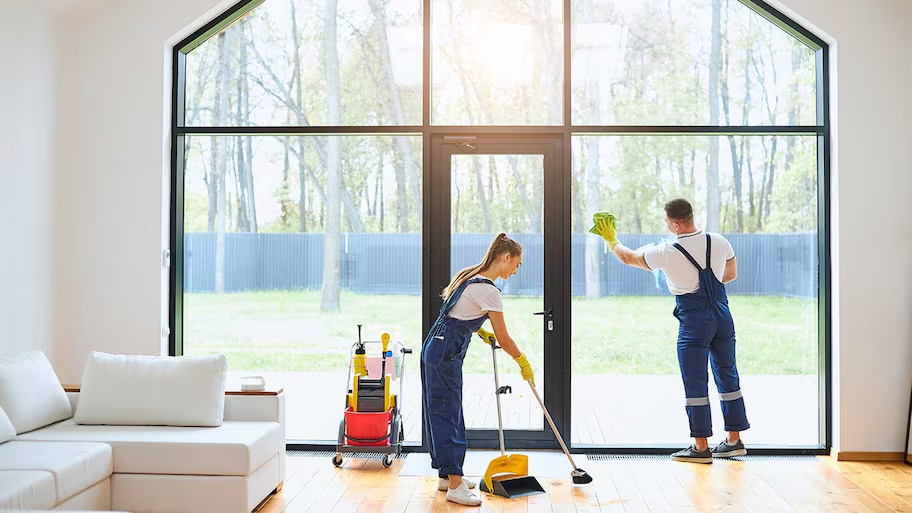
Discover the average kitchen hood cleaning cost, what impacts pricing, and how to budget for this essential maintenance. Get tips to save and keep your kitchen safe.
Goodbye cobwebs, hello pegboards


A cluttered and dirty garage can make it hard to enjoy your space and use your outdoor tools and equipment. But have no fear: Learning how to clean out your garage is a straightforward project that can reap major results. Drive into these nine tips for how to clean out your garage and organize it, too.
Choose a day when the temperature is moderate and there isn’t rain in the forecast. Mild weather allows you to feel comfortable while working in your garage and set things in your driveway without worrying they'll get wet.
Consider asking other household members to join you for this clean-out project. Then, pull your vehicles out of the garage, plan out the tasks you’d like to complete, and assign everyone to a job. Like any home improvement project, setting up the area and enlisting help makes the process smoother and more enjoyable.
Outline basic cleaning steps that are unique to your garage situation. Create reminders about certain objects, a list of what needs to go into storage, and other important details. Make a list of the storage materials you need, such as waterproof boxes, and purchasing before cleaning day.
Certain cleaning tasks, like moving kayaks or other large objects, need to be done first to clear space for maneuvering. If certain objects need careful handling or special reminders (like adding fuel stabilizer to lawnmower fuel or keeping hands of fishing rods), make note of it on your to-do list. As cleaning approaches, you may also want to assign tasks to other members of your household cleaning crew.
Most garages are too small to set up a cleaning and organizing space inside. We recommend choosing an outside spot like a driveway, deck, or porch and designating it as the workplace.
Use this workplace as a hub for your cleaning materials, equipment, and a place to sort and store smaller objects as needed. Make sure it has lots of space for cleaning larger objects until they’re ready to put back in the garage.
We suggest conducting a careful walkthrough of the garage and clearing any, well, junk. Garages can often fill up with things we don’t need, so it’s a good idea to get started with a trash bag and eye toward decluttering.
Candidates for tossing or recycling include cardboard boxes, old pots, forgotten bags of mulch or fertilizer, cans and bottles that haven’t been used for years, faded decorations, and leftover batteries. Practice proper disposal for any hazardous materials.
It’s always best to start with as clean of a slate as possible. Take everything out of the garage, being mindful to keep things in categories, such as sports gear or summer toys. Placing items in groups will make it easier to organize and store them after you clean.
A clear garage provides space to work and gives you access to every surface for cleaning. Be sure to remove everything, including items on hooks and plastic totes stored on shelves. Seeing your space with fresh eyes allows you to reimagine where it's best to store everything.
Since your garage is empty, consider using this time to make any necessary repairs or upgrades. Here are a few tasks to consider:
Touch up the paint
Reinforce shelves, hooks, or organizing systems
Inspect and repair any damaged or exposed wires and outlets
Switch out lightbulbs
Consider an epoxy floor finish
Chalk your windows seals
Search for signs of rodents and seal holes or set traps
Clean the gutters around your garage
When cleaning your garage, start at the top to ensure any debris that falls below gets cleaned up later.
With a broom or a long-handled duster, knock the cobwebs out of the corners of the ceiling. Brush down the walls and any storage units and containers to remove dust and debris.
Sweep the baseboards and the floor, starting from the far end of the garage to the garage door. Use a dustpan to collect the debris and dump it in the trash.
Mop your garage floor with a mixture of equal parts distilled white vinegar and hot water or a commercial concrete cleaner. Work from the far edges to the garage door, being careful not to walk on the wet ground. You can also pressure wash your garage floor instead of mopping.
Let your floor dry completely before walking on it to decrease your fall risk. While you wait for the floor to dry out, consider sorting through your items or tackling other cleaning tasks.
Garage floors are typically speckled with various stains from cars, lawn equipment, and more. Remove oil or rust stains by scrubbing them with a grease-fighting dishwashing liquid or lemon juice mixed with baking soda. You can also create a solution with 1 ounce Trisodium Phosphate (TSP) and 1 gallon of hot water, but remember to wear protective eye gear, gloves, and sleeves when working with this product.
Group your garage items by categories, such as sports, toys, winter gear, and lawn tools. Look through each group and decide what items you want to keep and what items you don’t need.
Decluttering your space makes it easier to store things in a tidy fashion.
There are many places where you can donate your unwanted items, though you should note that every charity is different and has restrictions on what they can accept. Here are a few of the major donation centers and what they usually accept:
The Salvation Army: clothing, electronics, furniture, jewelry, books, some mattresses
Goodwill: Cars, clothing, books, games, electronics, household appliances
Habitat for Humanity: Furniture, appliances, building materials
If you don’t have any of these options nearby, you should call around to non-profits and see if there is anything you have that they need. For instance, some pet shelters need old blankets to create bedding for rescues. Most donation centers, however, won’t accept damaged items, recalled items, and mattresses or box springs.
Donating unwanted items feels good—as they say, one person’s trash is another one’s treasure.
Creating a defined location for each item makes it easy to put things away. You can even label storage bins, hooks, and baskets with descriptors such as "bike helmets" or "snow shovel." By being specific, you'll know exactly where an item goes every time, and you won't be as likely to put something back where it doesn't belong—leading to unnecessary clutter.
It’s easy to set random items down in your garage, but it’s difficult to locate them again. Create homes for groups of loose items, such as putting garden gloves in a small bin instead of piling them on a shelf. Throw basketballs and soccer balls in a large plastic basket, and keep your flower seeds in an airtight container.
By containing your items, you limit the amount of space a certain item can take up, helping you from accumulating too much of one type of item.
If your garage has gotten stinky over time, your decluttering and cleaning should have fixed most of that problem. We suggest letting the garage air out and dry completely before shutting the door and windows, so there’s no chance of mildew growth.
If you keep your trash bins inside the garage, this is the perfect time to wash out and let them dry in the open air. Treat serious messes causing smells with deodorizers, like baking soda or cat litter.

When choosing storage for your newly remade garage, focus on vertical storage that takes advantage of all the space the garage has. As we mentioned in the planning section, it’s smart to choose these storage solutions ahead of time and order them so they’re ready to set up.
Consider garage organizers such as:
DIY garage shelves or wire shelves
Wall hooks
Overhead, rafter, or ceiling-mounted shelves
Pegboards for smaller tools
Corner shelves
Tall shelves like Gorilla racks
Storage tubes for long-handled tools
Tool rack
Bike storage on wall or ceiling
Ball bin or basket
Rolling cart for tools
Plastic storage totes with lids
Don't fret about making your storage solutions perfect. Focus on getting a few main storage areas set up. You can always adjust or add to them later—or reach out to a garage organizing expert for help.
After your initial clean-out, you should continue to make your garage work for you day in and day out. By maintaining your garage throughout the year, you'll have a beautiful, well-organized space for you and your family to enjoy. Brush away cobwebs and sweep the floors at least four times a year to keep your garage clean and tidy. Mop the floor at least twice a year to keep it looking fresh.
Aim to put items back where they belong as soon as you're done using them, rather than setting them somewhere else to put away later. If you come across an item you no longer use, pass it on instead of storing it in your garage. All of these steps help to keep clutter and disorganization at bay.
Hiring a professional organizer costs anywhere from $250 to $835, with an average price of around $525. The final price depends on the job size, location, and your pro’s experience. Garages are known for being one of the more complicated organization jobs, due to the size, so that will also impact the price. In the case of a truly cluttered space, the cost may be much higher.
Garage cleaning is a DIY-friendly project, so long as you have enough time and some supplies to help things move quickly. Most of all, you need some storage to put all the knick-knacks that don’t have a home after you clean the garage, plus adequate cleaning supplies.
Storage items can be pricey, and costs skyrocket if you build shelving as part of the cleaning process. DIY-wise, you might need to hire two pros: a local cleaning expert and a home organizer near you. Some companies may do both projects in one visit.
From average costs to expert advice, get all the answers you need to get your job done.

Discover the average kitchen hood cleaning cost, what impacts pricing, and how to budget for this essential maintenance. Get tips to save and keep your kitchen safe.

Hiring a house cleaner frees up your schedule and keeps your home spotless. The cost to hire a house cleaner depends on the size of your house, your schedule, and who you hire. Use this guide to understand typical house cleaning prices better.

Tile and grout cleaning brings your tiled rooms back to life. In this guide, find out the details of how much it costs to hire tile and grout cleaners.

If your kitchen or bathroom tiles need some TLC, consider hiring a pro to help. Here are the tile and grout cleaning questions to ask before starting.

Installing a central vacuum system is expensive and complicated, so you must know who to hire to ensure the project is done right.

When warmer weather comes, it’s time to tackle some home projects. Use this complete summer home maintenance checklist filled with helpful tips.